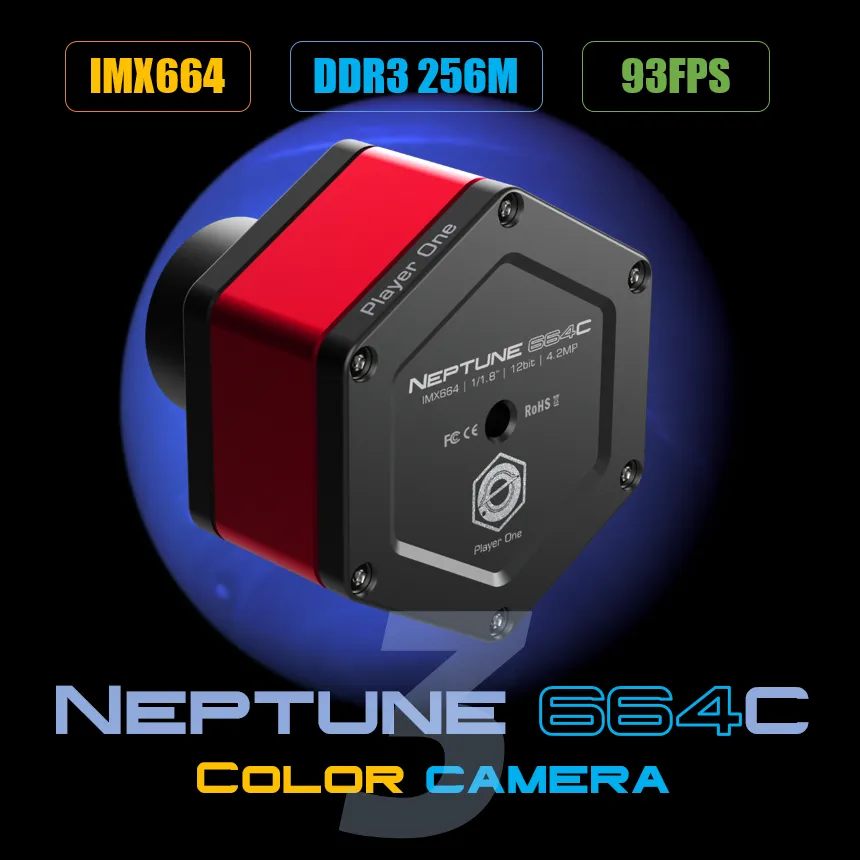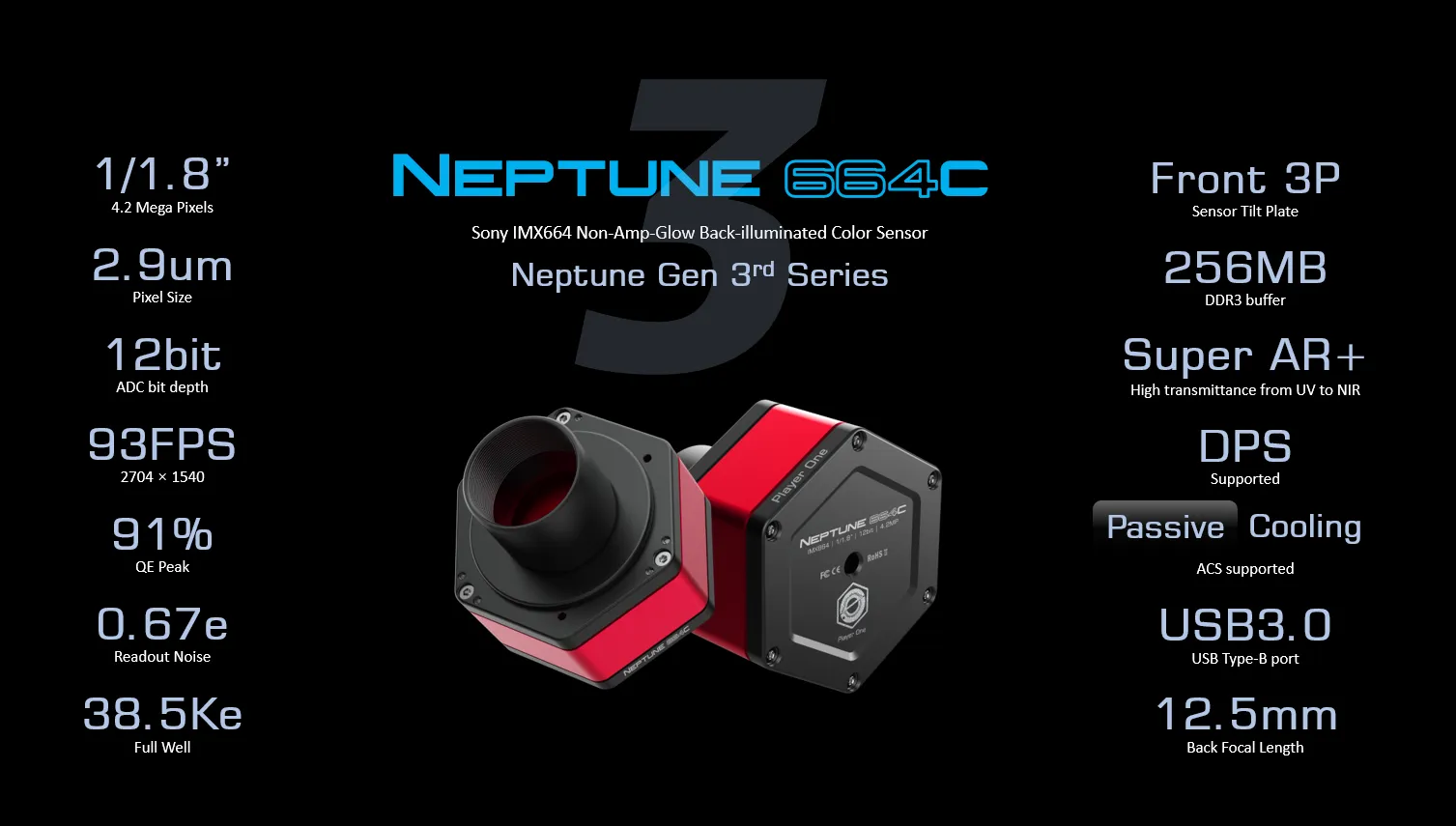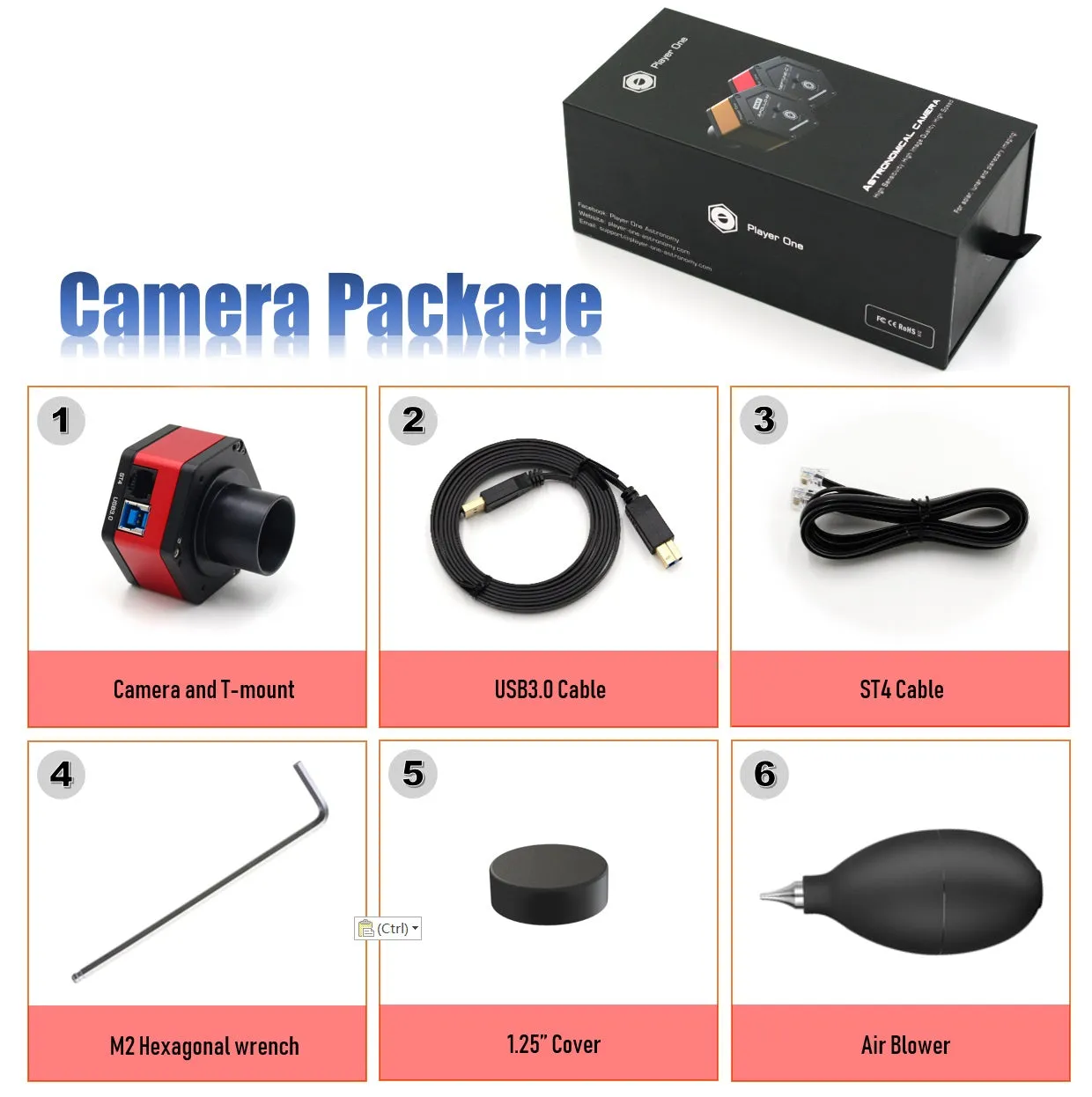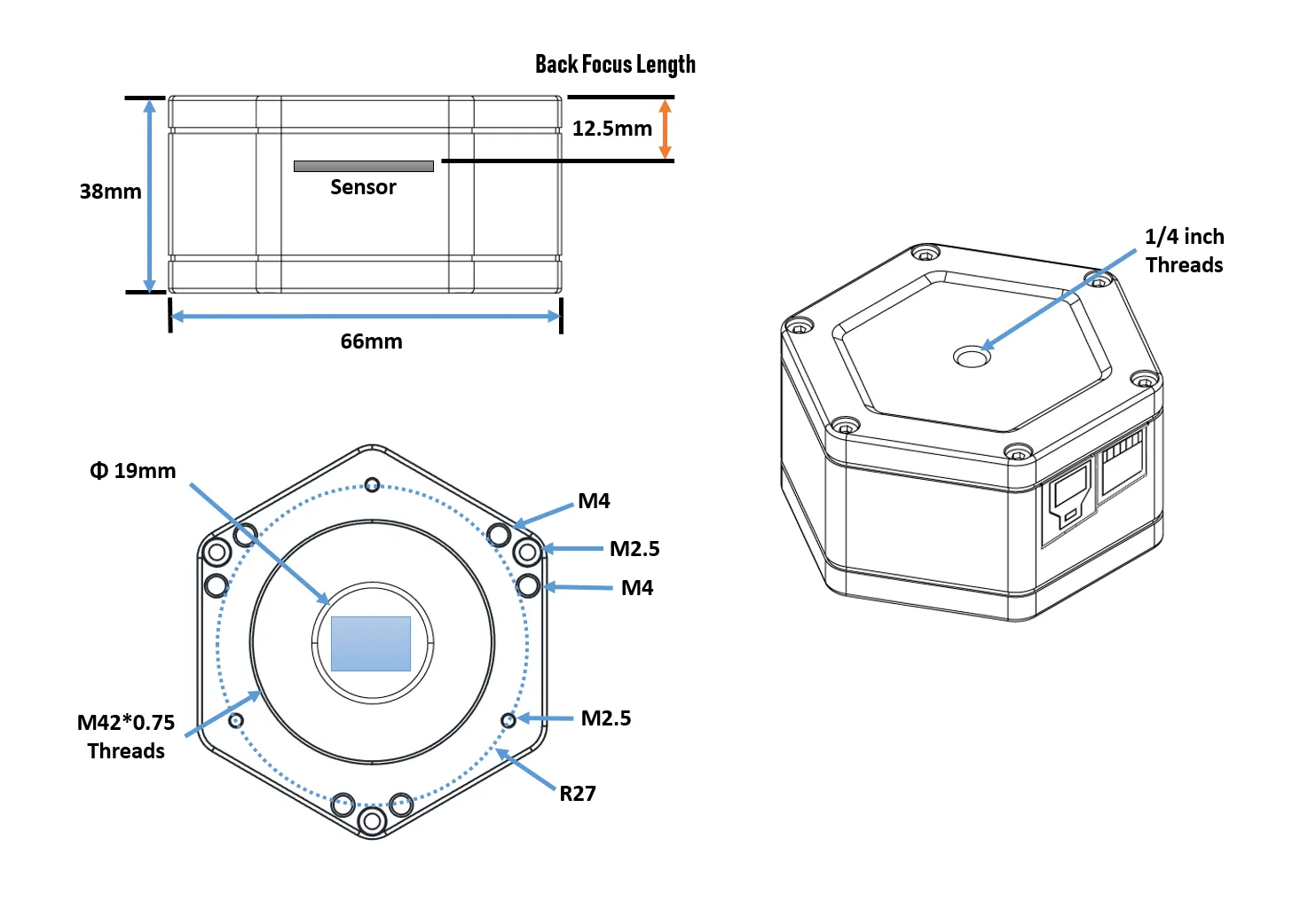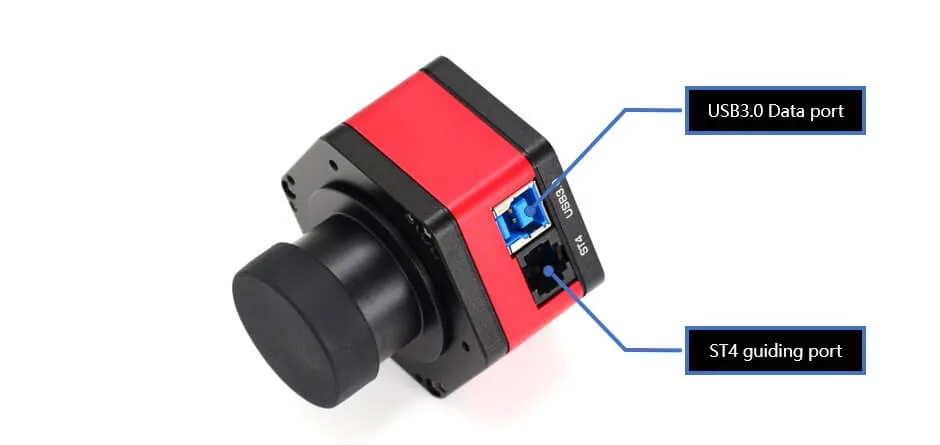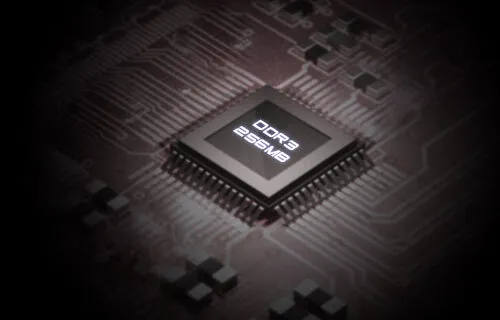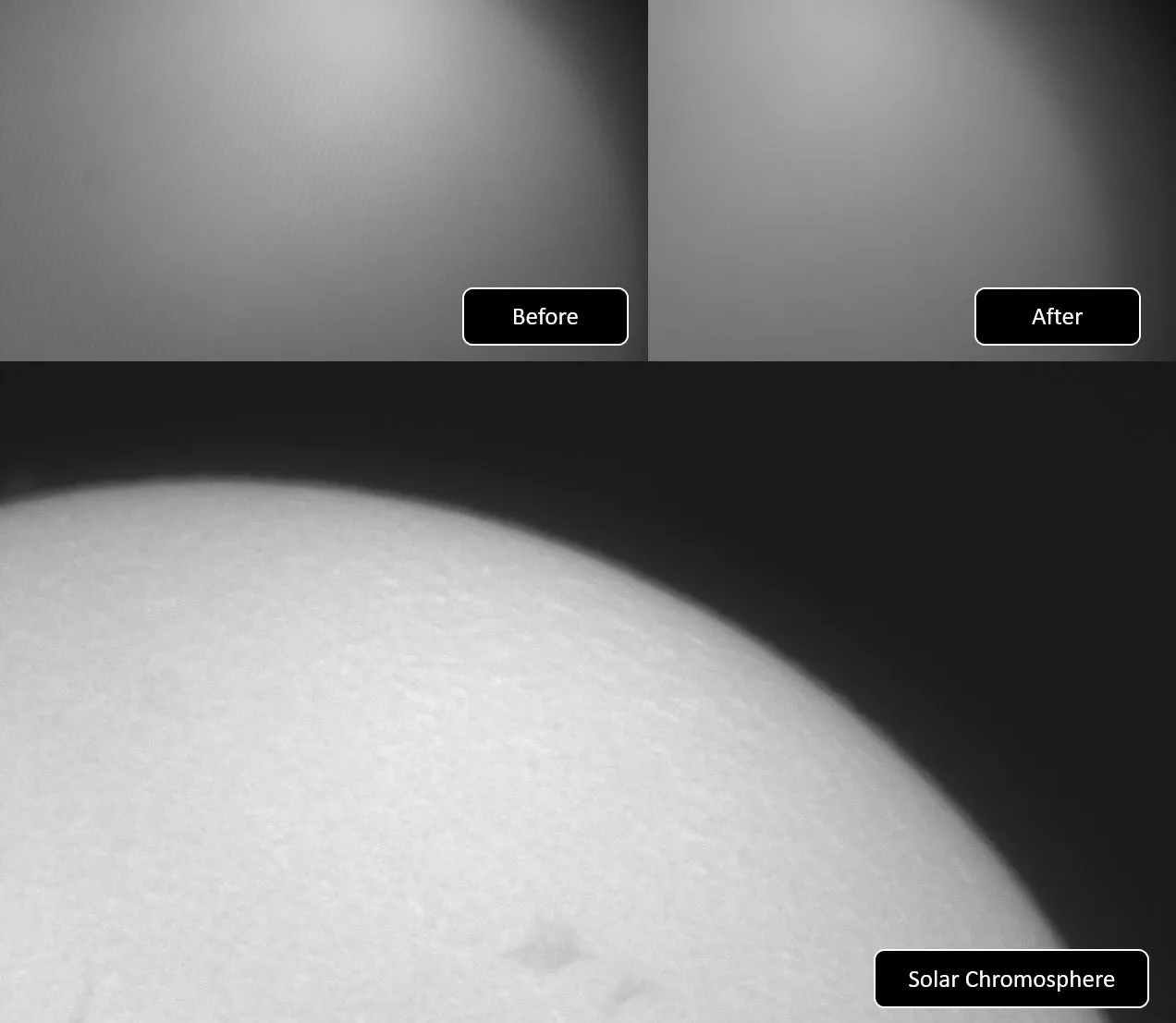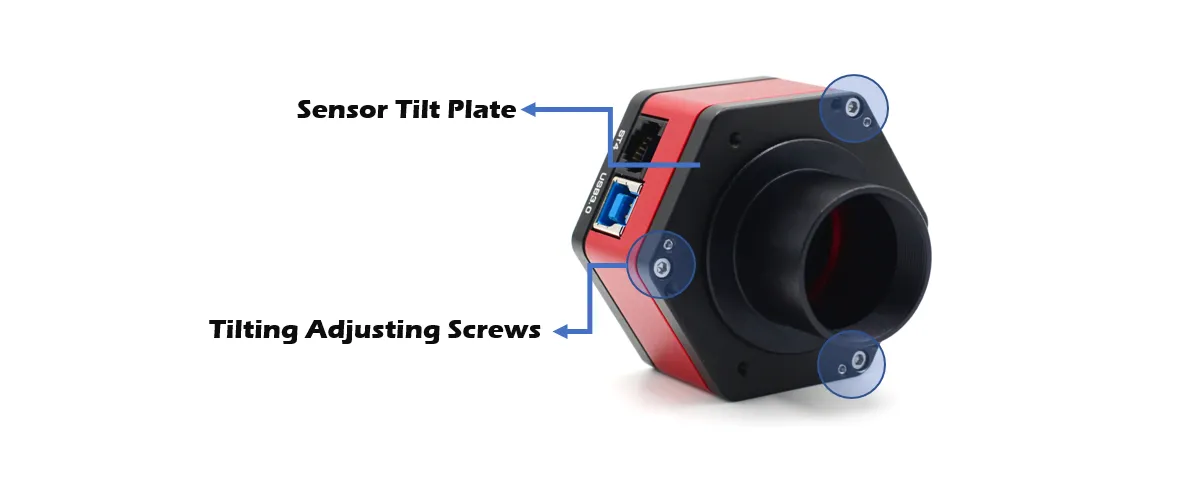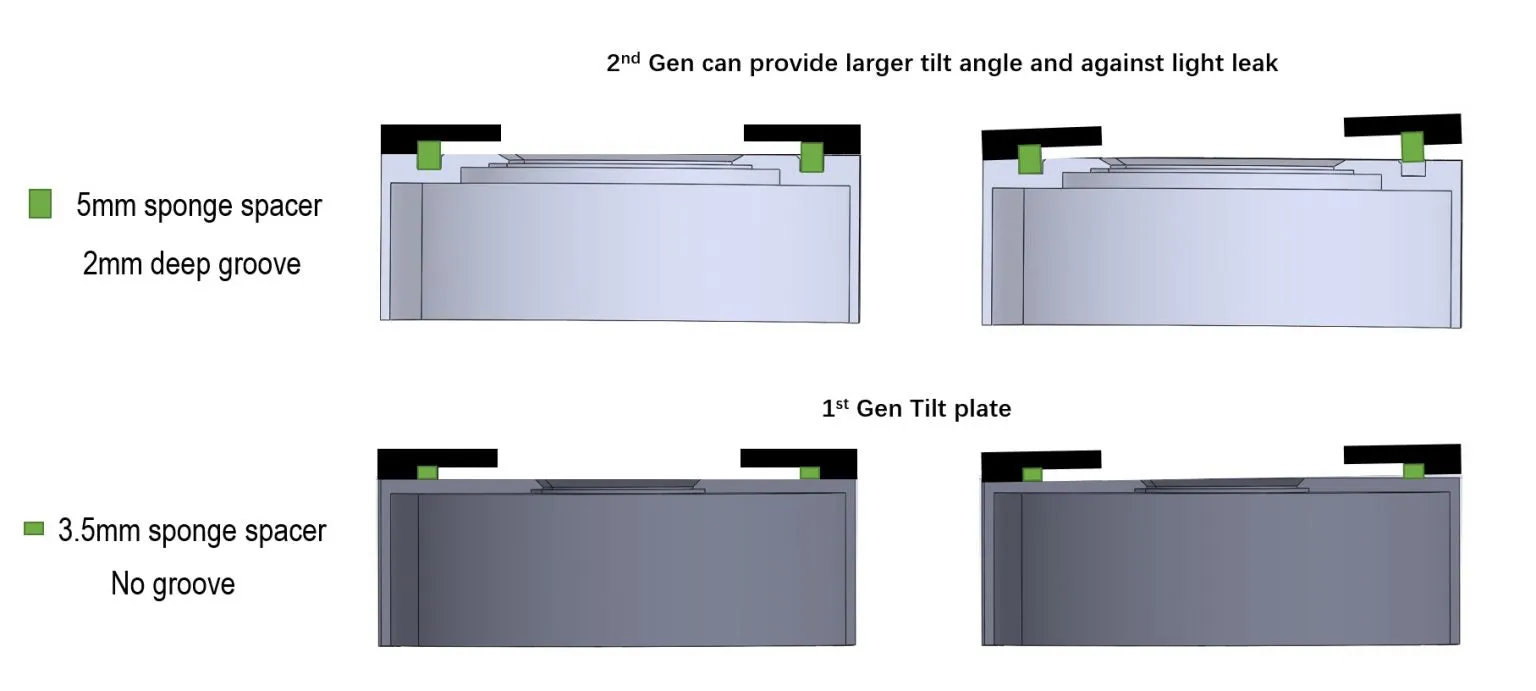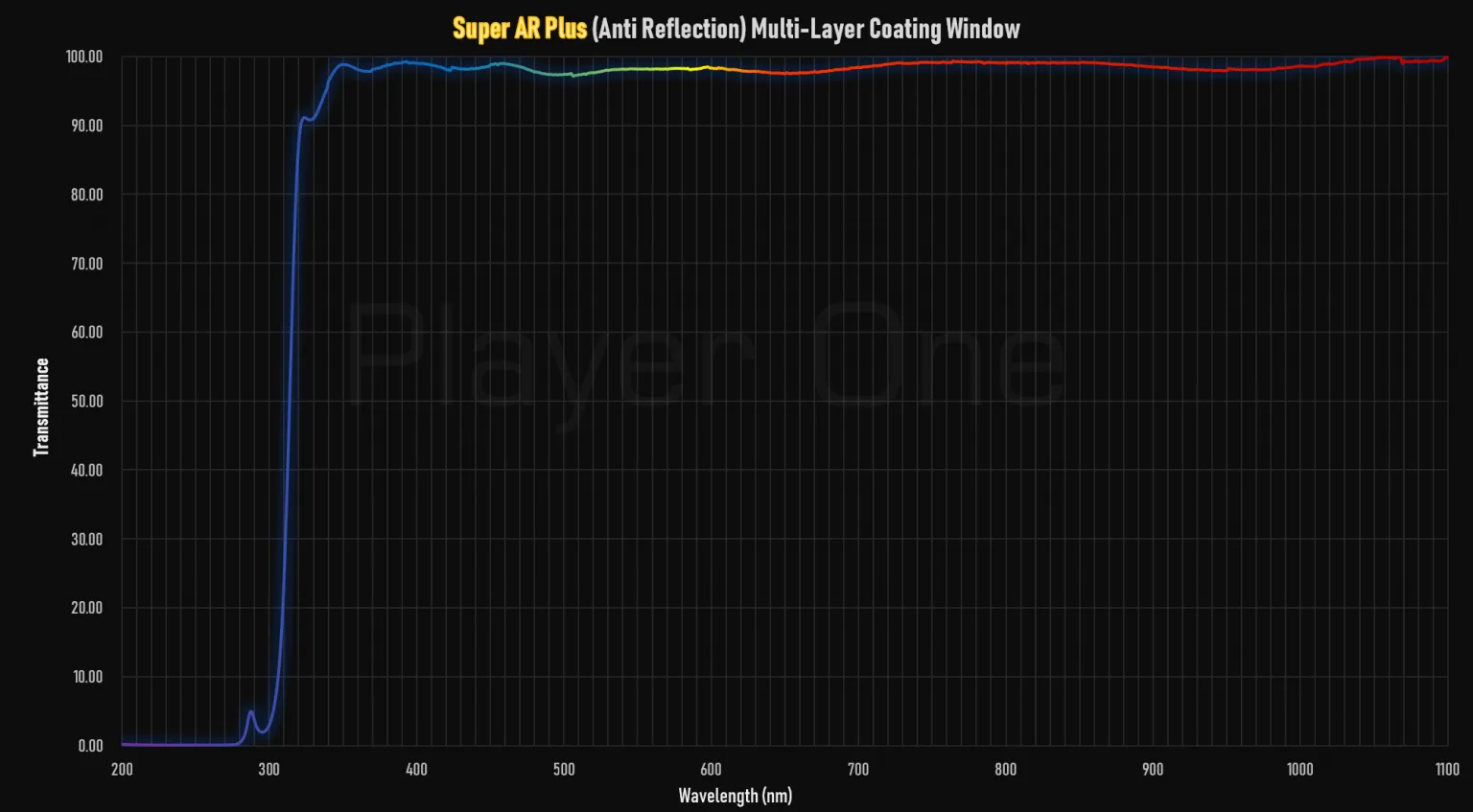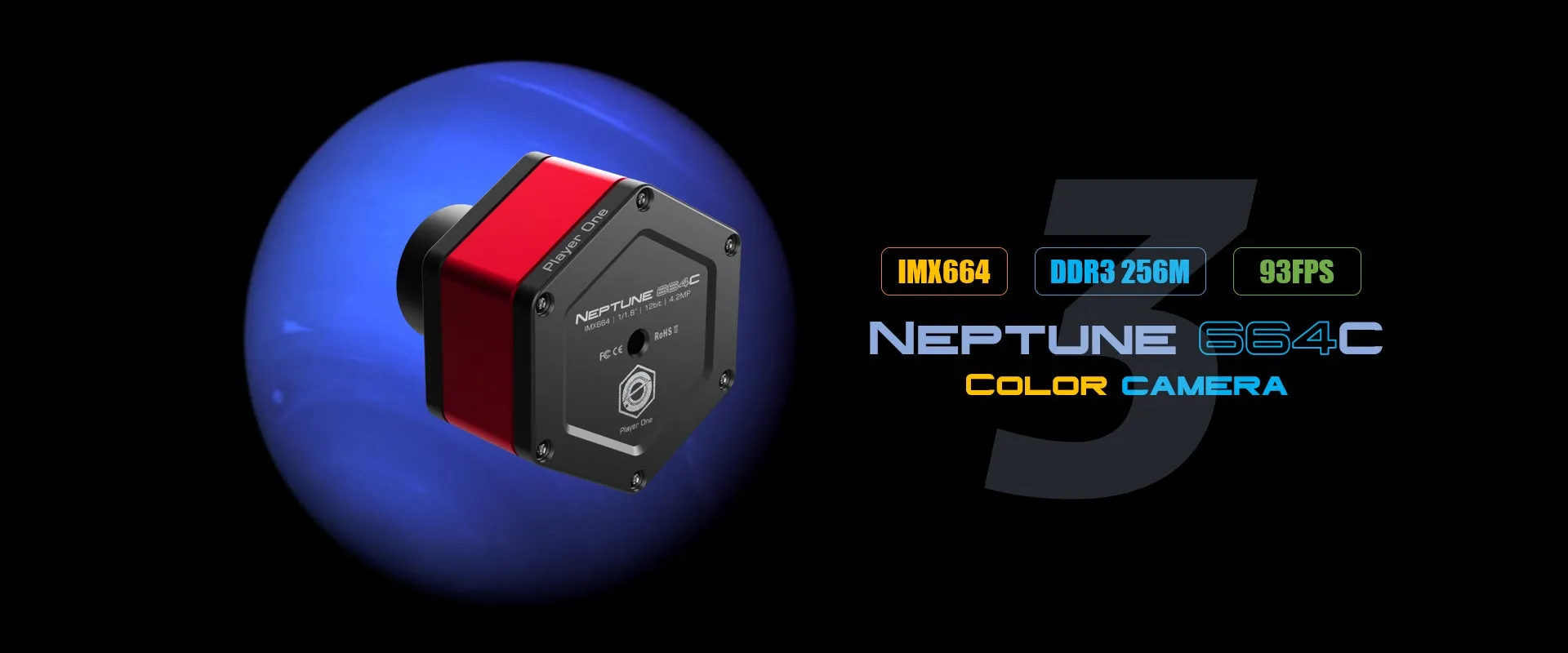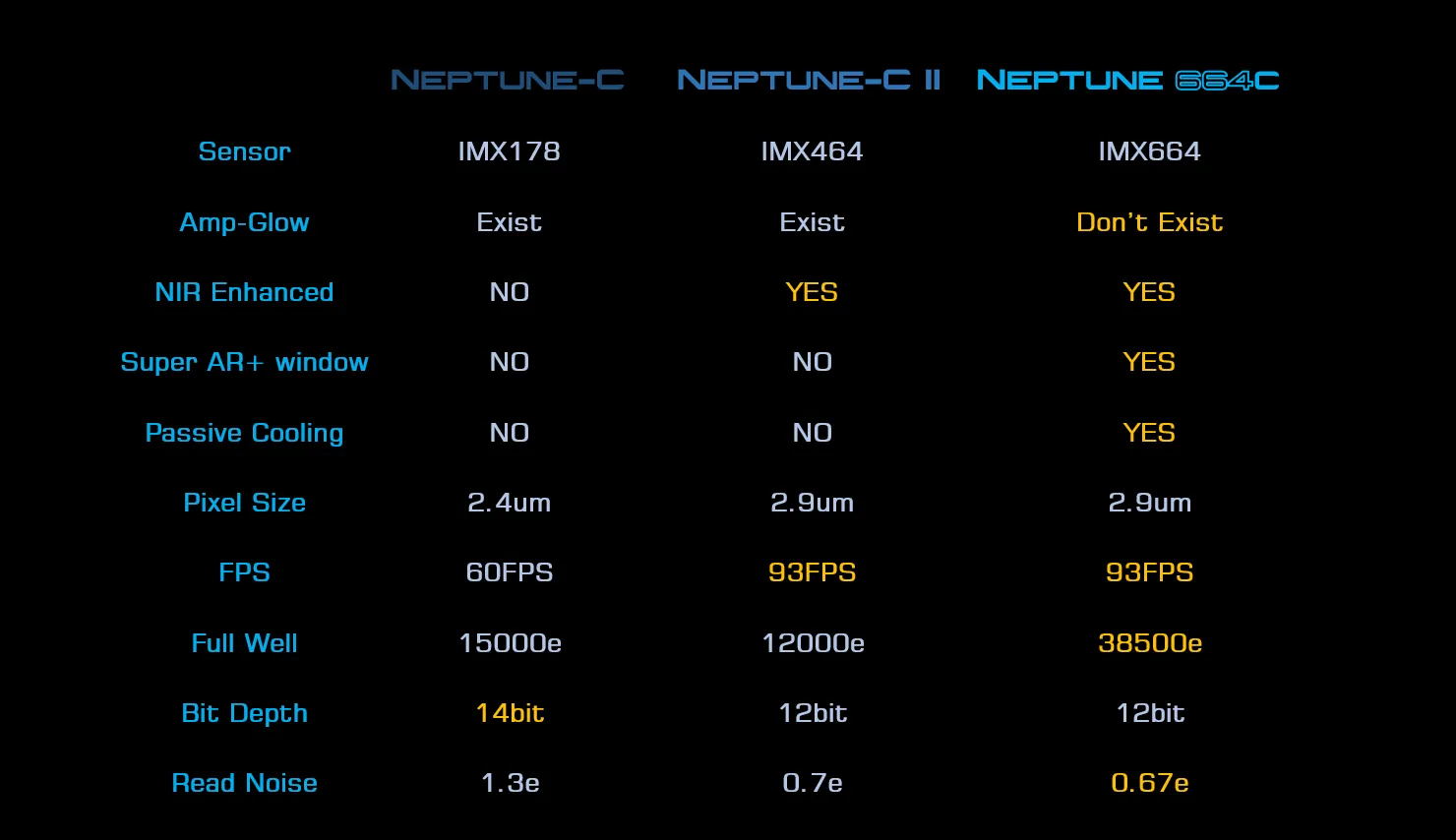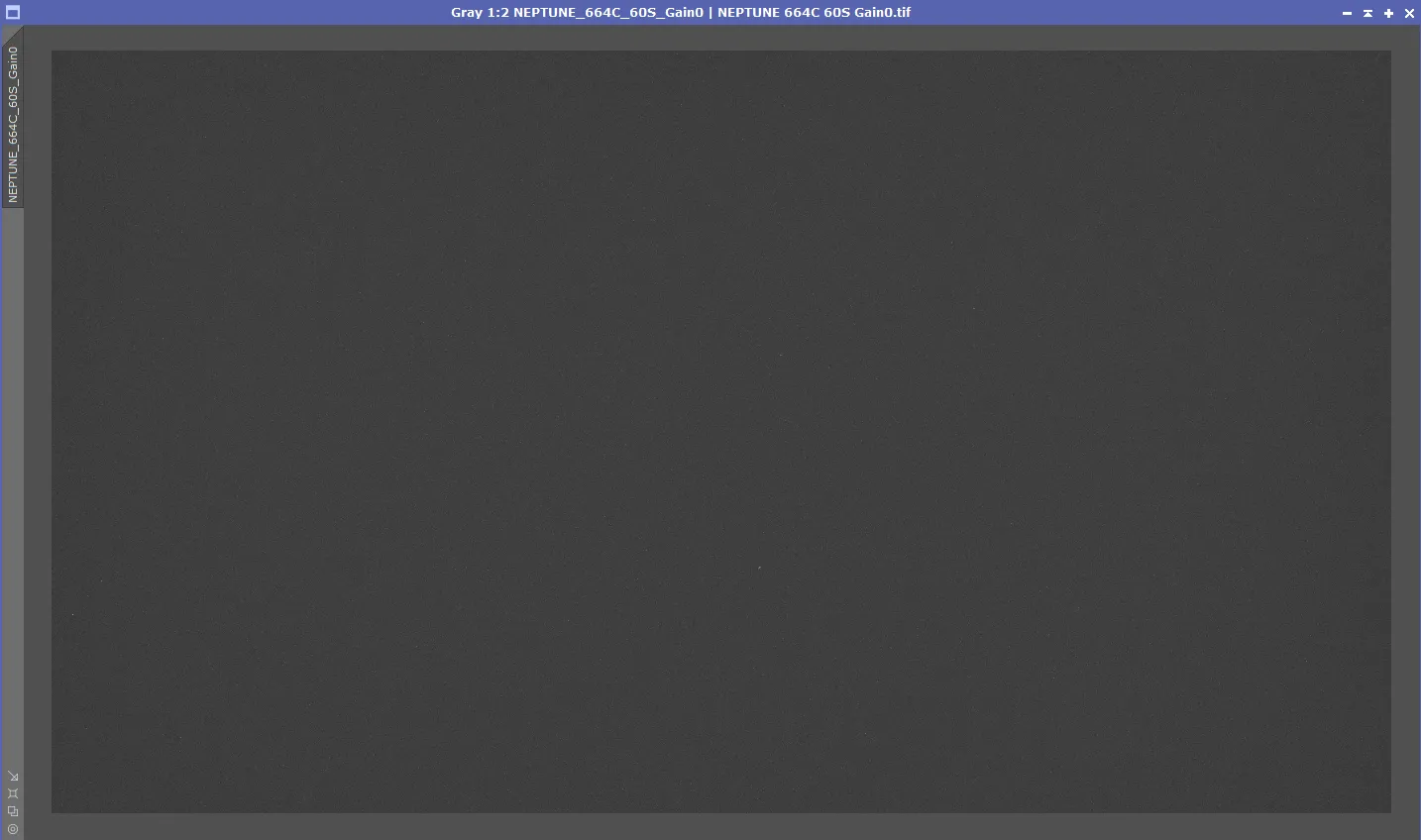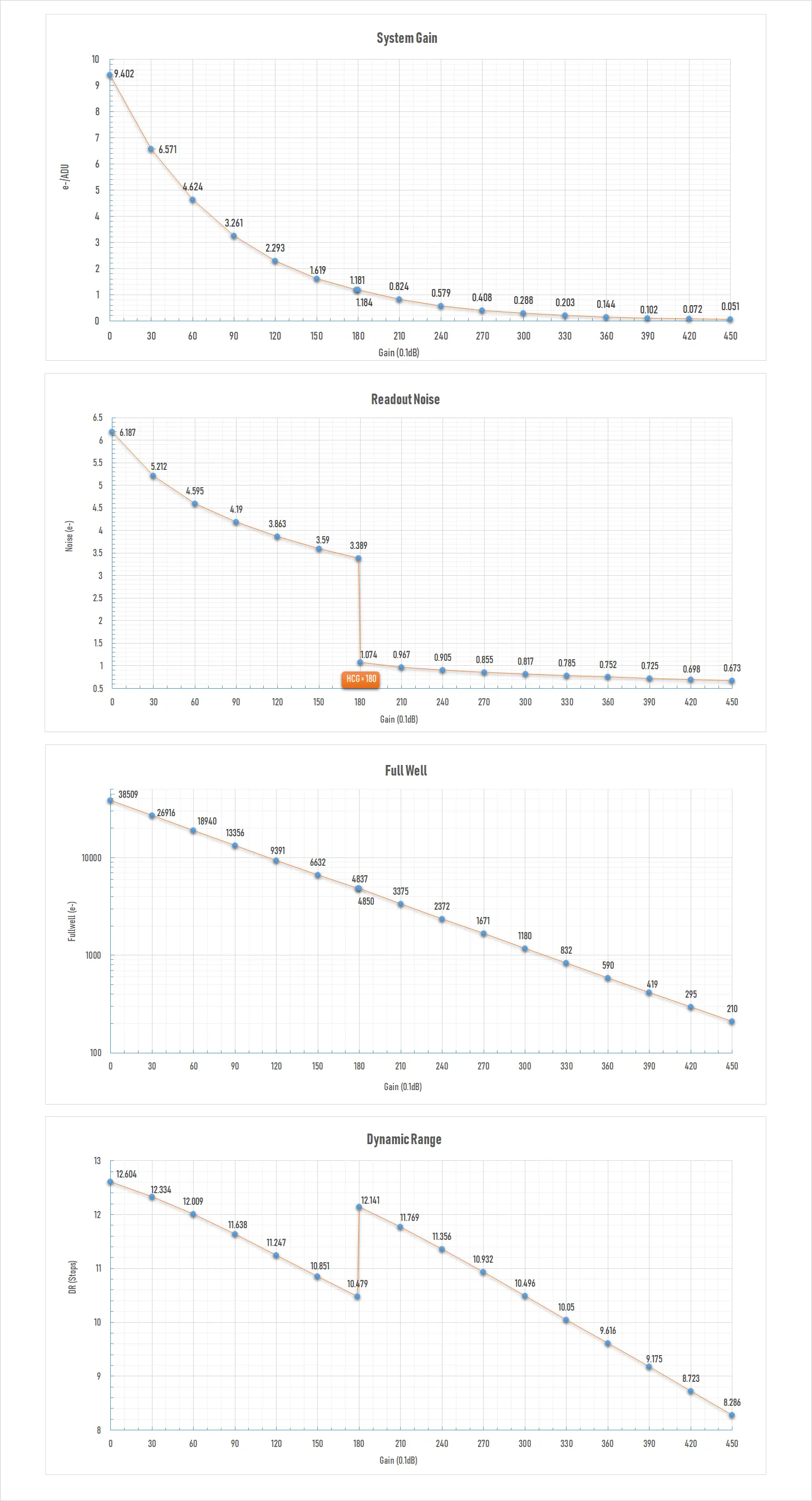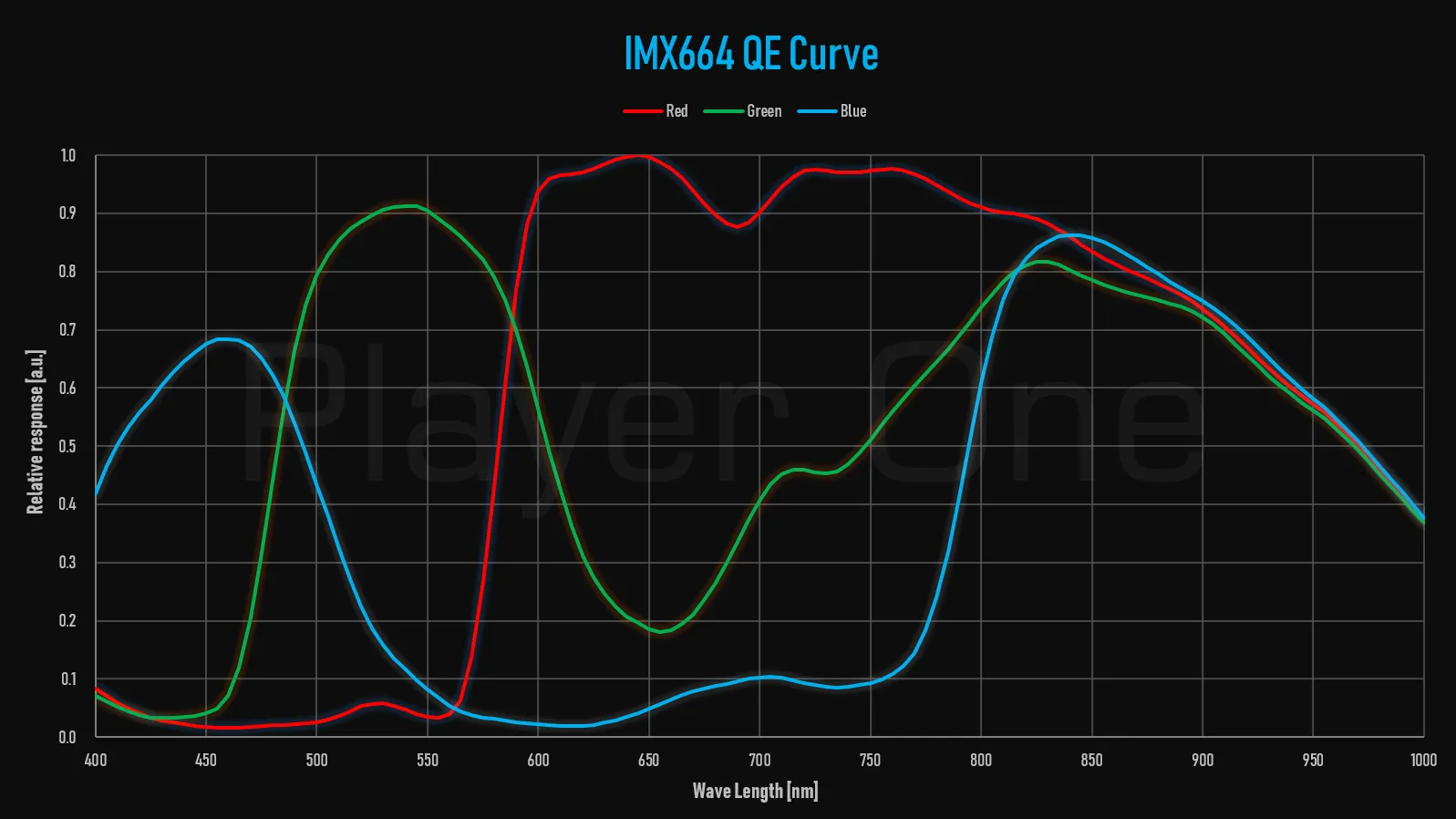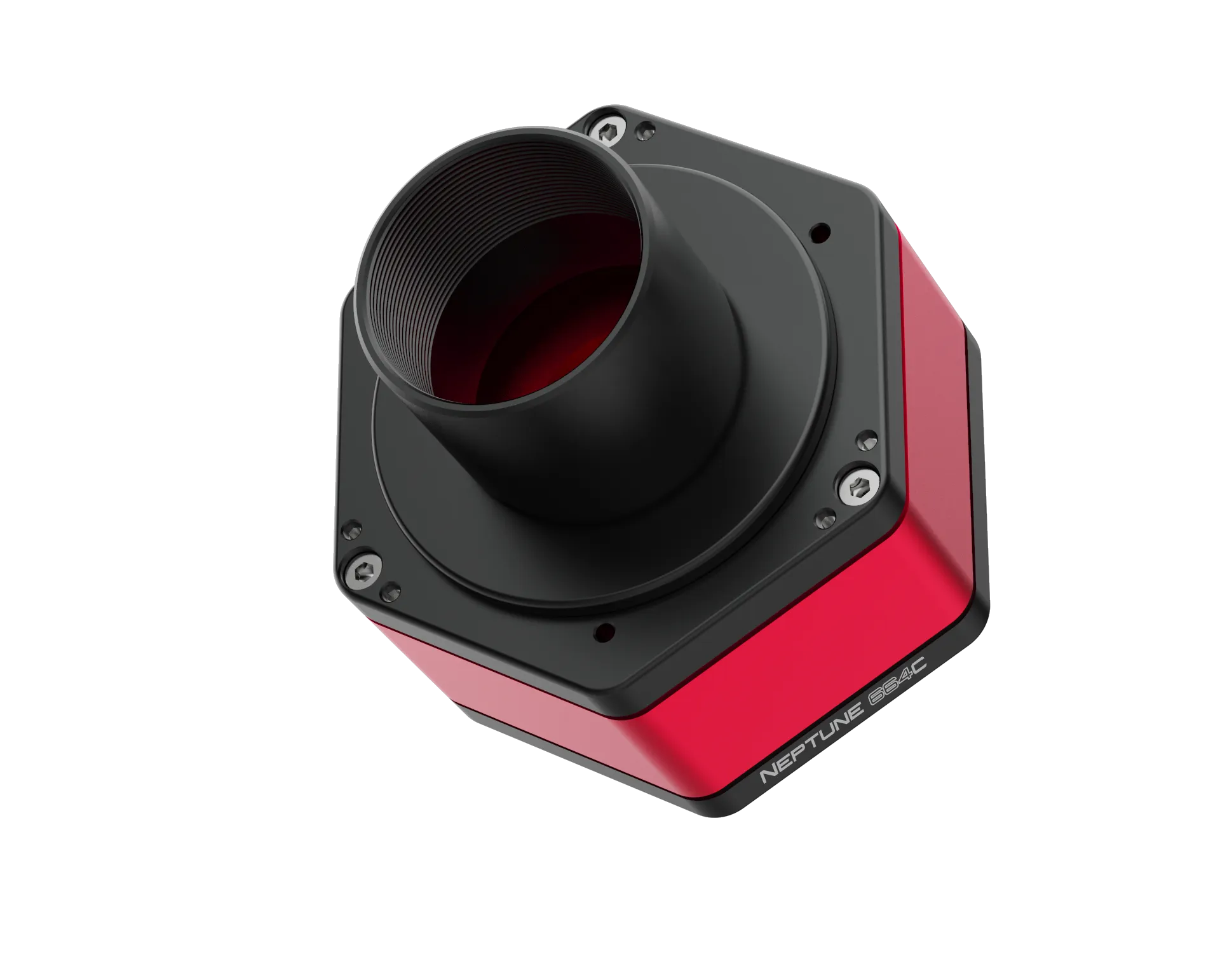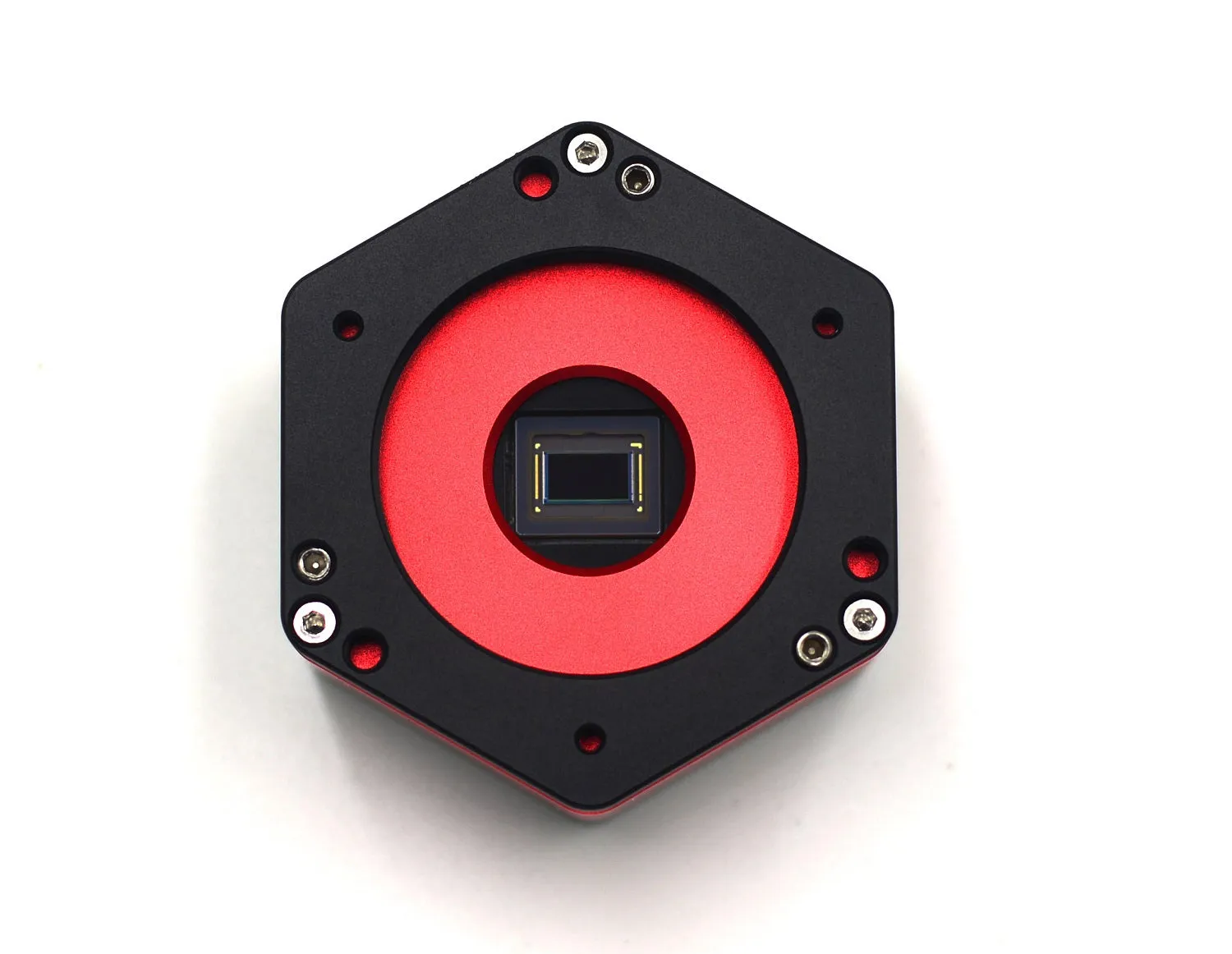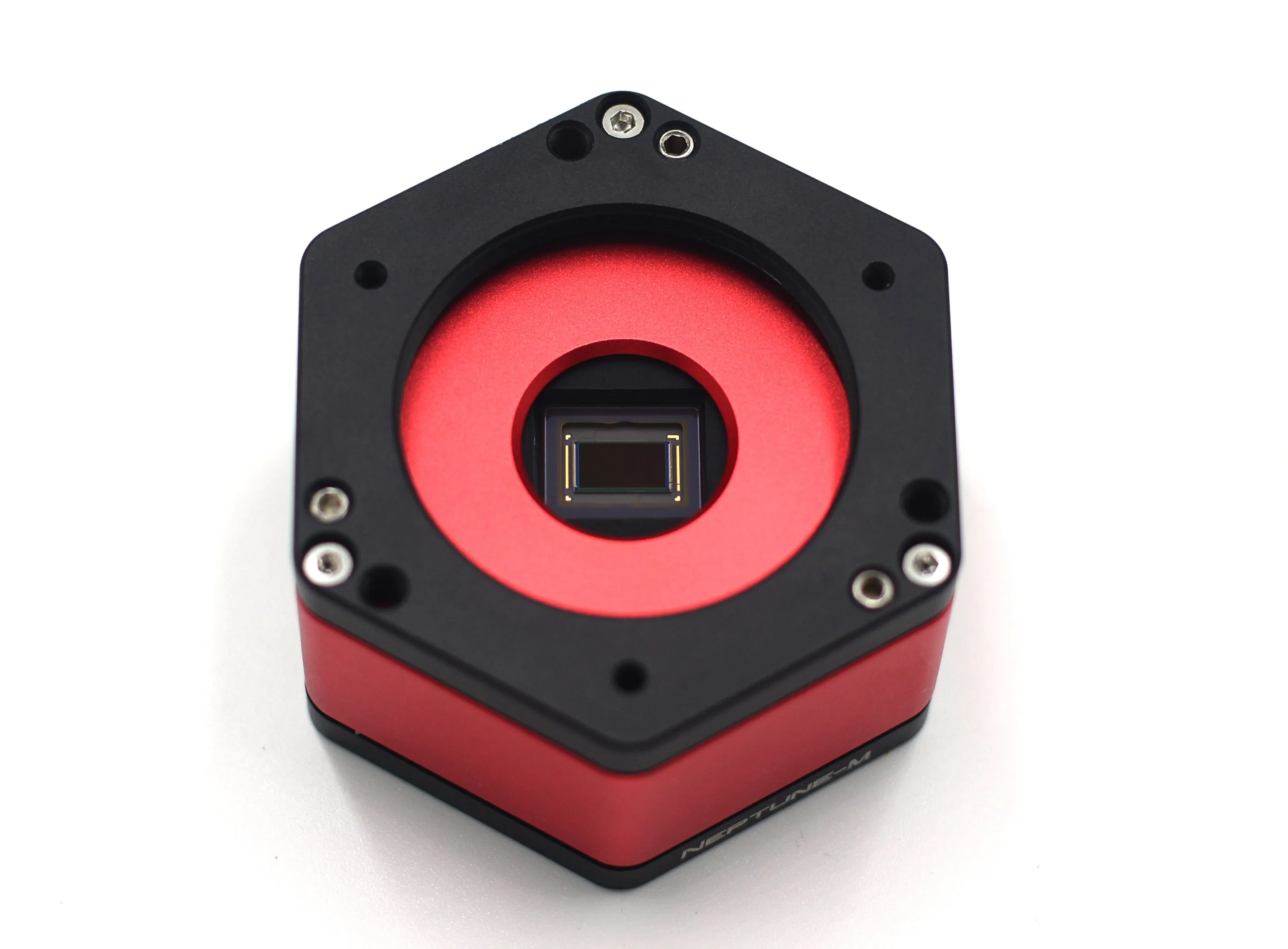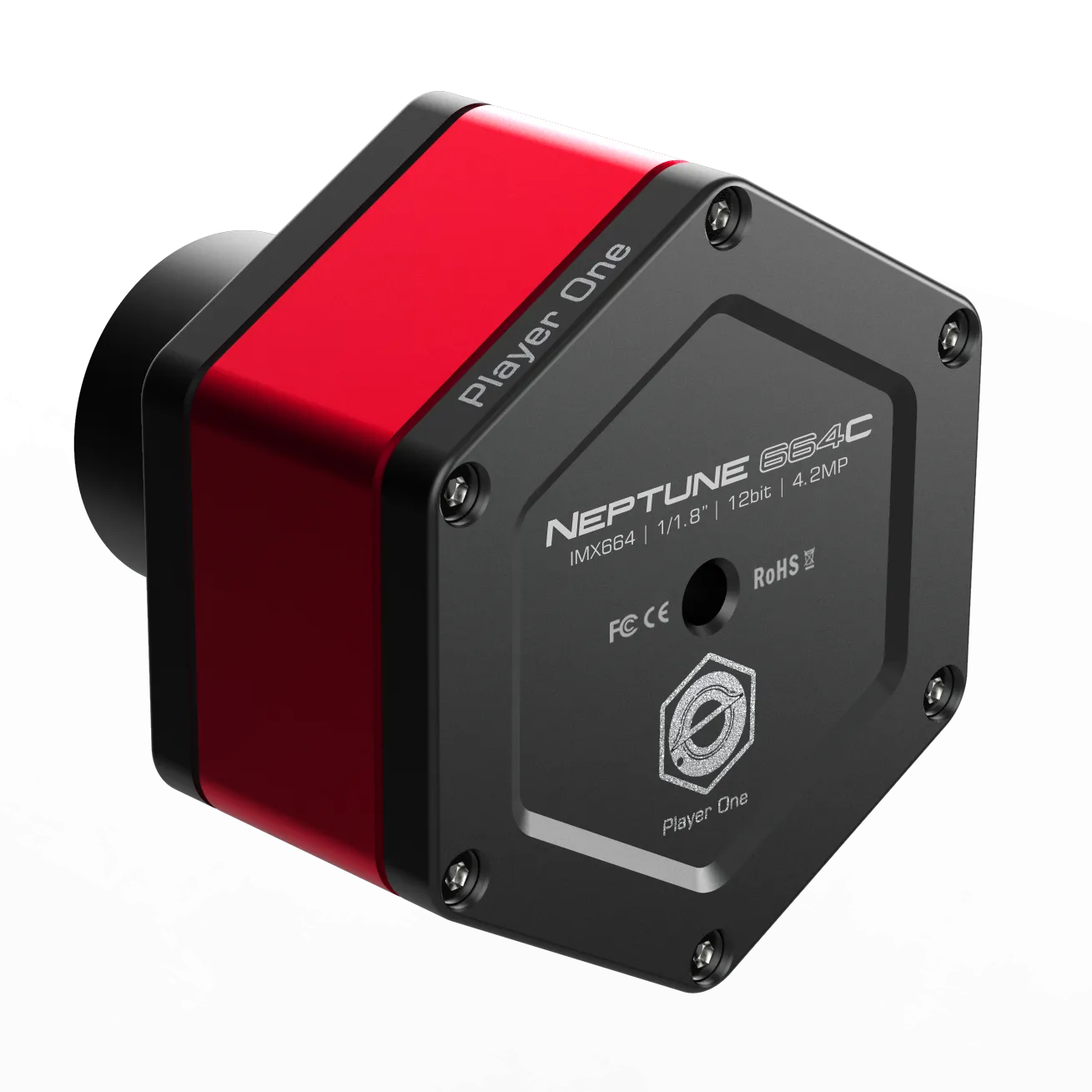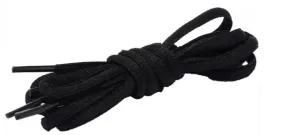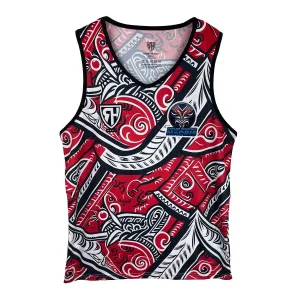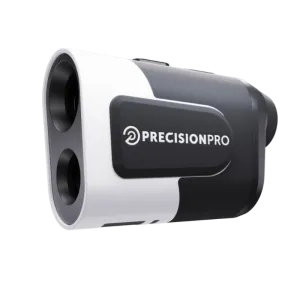Player One Astronomy has unveiled their latest creation in the NEPTUNE 3rd Gen series, the NEPTUNE 664C. Designed as the successor to the Neptune-C II (featuring the IMX464 sensor), the 664C comes loaded with Sony's 1/1.8" IMX664 color sensor. The sensor sports a pixel size of 2.9um, a well depth of 38.5ke, and offers a 4.2MP resolution (2704x1540), with a diagonal measurement of 6.46 mm.
Super AR Plus Window
The 664C incorporates a Super AR Plus window in front of its sensor. This special window offers incredible light transmittance ranging from 310nm to 1100nm, enhancing both ultraviolet and NIR performance.
Naming Scheme
Player One has a unique approach to naming their cameras; each is named after a planet, with the sensor size loosely corresponding to the planet's size. For instance, a camera with a 1-inch sensor will be called Saturn, while one with a ½.8 inch sensor goes by Mars.
STARVIS 2 Technology
The 664C utilizes Sony's latest STARVIS 2 tech—a back-illuminated pixel technology in its CMOS sensor.
Non-Amp-Glow
One of the camera's standout features is its completely "dark" dark frame. No matter how much you tweak the curve, there's zero amp glow.
Cutting-Edge Design
In terms of aesthetics, the 664C combines a hexagonal main body with rounded chamfers, finished in contrasting colors of vibrant red and subdued black. The overall matte finish adds a luxurious touch.
2nd Gen Sensor Tilt Plate
The camera includes a high-density sponge shading pad, effectively eliminating light leakage from the sides.
256M DDR3 Cache
The 664C is a pioneer, being among the first planetary cameras to feature DDR3 cache. This stabilizes data transmission, reduces read noise, and performs excellently even when connected to a USB 2.0 port.
DPS Technology
Dead Pixel Suppression (DPS) technology identifies and corrects abnormal pixels by analyzing dark frames and adjusting them according to neighboring pixels.
Passive Cooling System
A new feature in this model helps dissipate heat away from the sensor.
Safety Measures
The camera is equipped with overvoltage and overcurrent protection mechanisms to keep your gear safe.
Data Port Capabilities
In RAW8 mode (10bit ADC), it can hit 93 FPS when connected via USB3.0, while RAW16 mode (12bit ADC) offers 46.5 FPS. However, actual recording speeds may vary depending on your hard disk.
Readout Noise
All noise values are verified, and you can test it yourself using Sharpcap 4's Sensor Analysis feature. The readout noise can drop as low as 0.75e at a gain of 350 and approximately 0.67e at a gain of 450.
HCG Mode
The High Conversion Gain (HCG) mode kicks in automatically when the camera's gain setting is ≥180, reducing readout noise while maintaining high dynamic range.
QE Curve
Lastly, this camera is optimized for Near Infrared (NIR), boasting a high QE that can be attributed to both the Sony sensor and the Super AR Plus window.
With features like these, the NEPTUNE 664C establishes itself as a robust, high-performing planetary camera for all your astrophotography needs.
Specifications
Camera Specifications
-
Sensor SONY IMX664 1/1.8" CMOS (color)
Diagonal 9mm
Total Pixels 4.2 Mega Pixels
Max Resolution 2704×1540
Pixel Size 2.9μm
Chip Size 7.8mm×4.5mm
Frame Rate 136FPS(10bit)
Bayer Matrix RGGB
Shutter Rolling shutter
Exposure Range 32μs-2000s
Readout Noise 6.1e~0.67e
QE Peak ≈91%
Full Well 38.5k e
ADC 12 bit
Data Port USB3.0/USB2.0
Adapter 1.25″ / M42X0.75
Back Focal Length 12.5mm
Protective Window D21*1.1MM High Quality AR Plus (Anti Reflection) Multi-Layer Coating
Diameter 66mm
Weight 180g
Resolution and FPS Under USB3.0 mode
Resolution 12bit ADC 10bit ADC
2704×1540 93FPS 46.5FPS
2560×1440 105FPS 52.5FPS
1920×1080 187FPS 93FPS
1280×720 275FPS 203FPS
800×600 325FPS 240FPS
640×480 398FPS 294FPSMore resolution options could be setup in capture softewares!

 Cart(
Cart(